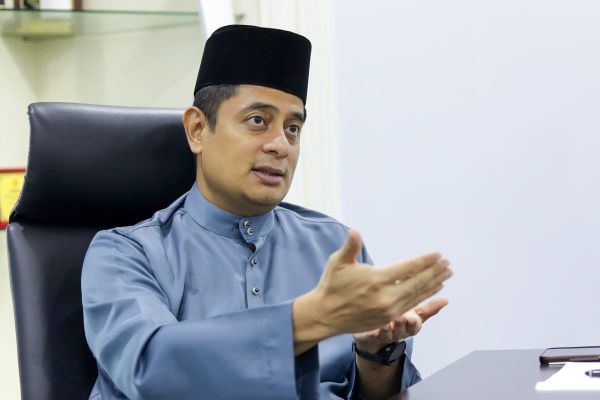By Danial Dzulkifly
SHAH ALAM, July 2 — The Selangor government is “whitelisting” telecommunication towers in the state to ensure they operate in strict adherence to local laws and regulations.
State executive councillor for Islam and innovation Dr Fahmi Ngah revealed there are 2,133 illegal telecommunication towers statewide.
Of these, 633 are unregistered with state authorities, while the remainder are registered but do not pay annual fees to their local councils.
Fahmi said the whitelisting aims to bring all telecommunication towers in Selangor under proper regulation, ensuring compliance with the law while generating significant revenue for local councils.
“If we proceed with this whitelisting … we are looking at RM22 million to RM32 million a year in additional revenue for local councils.
“The legalisation process means that those responsible for these towers will be asked to pay or face possible shutdown,” he said in an exclusive interview with Selangor Journal at the state administrative building here recently.
[caption id="attachment_229564" align="aligncenter" width="1200"] A telecommunication tower. — Picture via UNSPLASH[/caption]
A telecommunication tower. — Picture via UNSPLASH[/caption]
Fahmi believes this initiative will address community concerns about radiation from these towers, particularly illegal ones.
“A legal tower will comply with radiation limits while an illegal one won’t. I believe if we start doing things the right way, it will resolve many concerns,” he said.
These towers, which are the responsibility of telecommunication operators, are often erected on rented private land for commercial purposes.
Drawing parallels with private land or home owners who rent out their properties, Fahmi emphasised that tower operators must also comply with conditions set by the local councils.
“If you convert your house and sublet it, you have to pay tax, right? It’s a legitimate business, and you need to be licensed by the local council.
“Similarly, if somebody puts up an antenna — 4G, 5G or 6G — on rooftops, they are earning from that transaction. Should they be licensed? Yes. Otherwise, it’s illegal,” he said.
Regarding the charges, Fahmi clarified they are not set by the state government, but by local councils.


